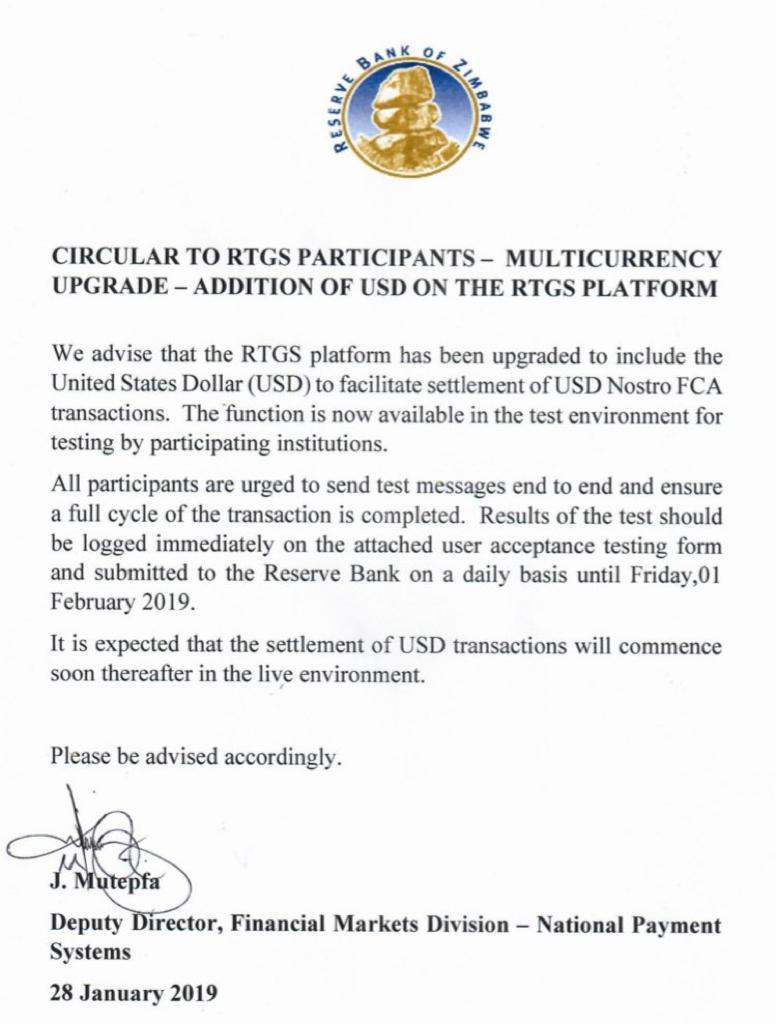1. Zimbabwe has a “new” currency called RTGS Dollar. It’s effectively the Zim Dollar by another name, of you want to be cautious, it’s a precursor to a local physical currency which will be needed in an economy that has an appetite for physical cash.








